Corrupt Scientific Medical Research
Big Corrupt Pharmaceutical Companies use Scientific Literature as a Marketing Tool – and this has been a problem for as long as Journals have existed. It’s a known problem that is very difficult to overcome – if not impossible.
“The Illusion of Evidence Based Medicine”
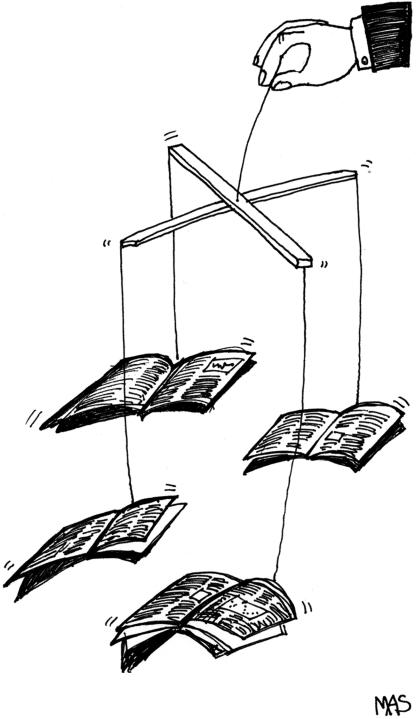
It’s all fraudulent Marketing, disguised to look like Science.
The pharmaceutical industry is manufacturing and ghost-writing all these medical journal articles, trials, and research for marketing purposes. In this interview, Leemon McHenry, PhD, guides us to the fraudulent core of ghostwritten studies, captured legislators, revolving-door regulatory agencies, pay-to-play medical journals, and the “key opinion leaders” who lend their academic credentials to giant corporations…for a price. He is now firmly of the opinion that Medical Journals for the most part, should not even qualify as Scientific Journals, and that the Peer-Review system is weak, that we really can’t trust what’s going on in the medical literature.
How does the Ghost-Writing Process work?
He says there are 4 different degrees, but the worst one is:
- Pharmaceutical companies will conduct a clinical trial.
- Then they will hire a Medical Communications company to write the manuscript for the trial – that person who actually writes the manuscript is working from a kind of template. The pharmaceutical company pays the medical communication company to produce this draft of the manuscript
- Once the draft is completed, it goes back to the Sponsor company (the pharmaceutical company – all of the marketing executives) to approve that the manuscript is “on message with their marketing agenda“
- Then they will find what they call “authors”, what we call honorary authors, namely academics, who will be paid to put their names on these papers. They might of had something to do with the clinical trial or something to do with the design of the trial, but they basically didn’t do any of the writing of the manuscript,
- So all of the marketing messages are planted into the manuscript for these so-called authors, who reviews it and agrees that it would be published in his or her name.
- The readers of the medical journals are led to believe that this is a piece of research that is guaranteed by the first author of the manuscript, and it very often seems to be the case, that none of these authors have actually reviewed the “data”.
- All they’ve done is read the paper and agreed to put their name on it.
Lead Authors may not be privy to Adverse Events or hidden Data
Since these lead authors are only coming to the party “after the trial is completed and after the paper is already written”, these authors have no idea on what the coding could contain – pharmaceutical companies can code adverse events to “hide” serious adverse events (such as suicidal attempts in antidepressant drugs being coded as “emotional lability” which basically could mean anything from ‘crying‘ to ‘jumping off a building’).
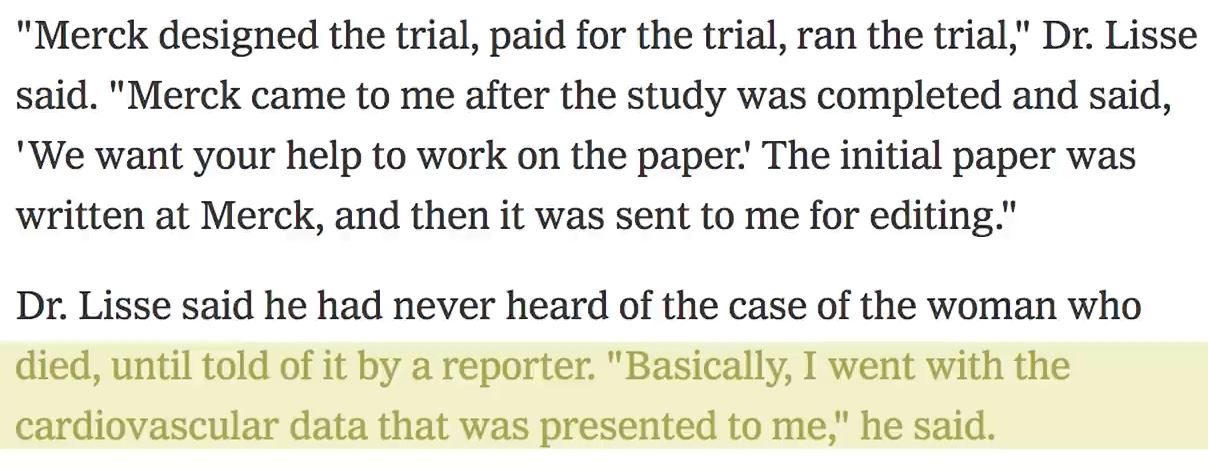
Medical Journals have devolved into Info-Marketing for BigPharma
“Not all medical research is fraudulent, but the problem is, the fraudulent articles are so professionally done, that it’s difficult to distinguish them from the genuine research.”

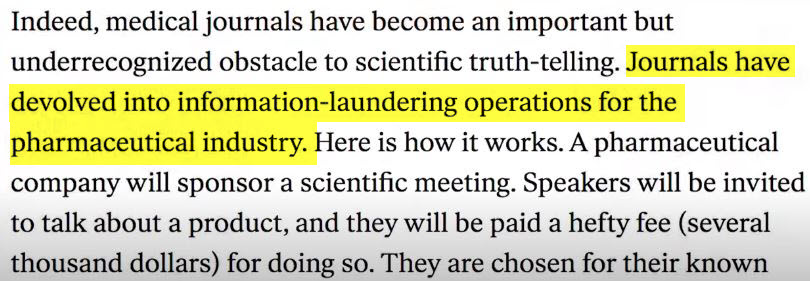
Pharma companies also purchase thousands of issues of the journal for their sales reps to distribute, which is another way that Medical Journals have become dependant upon the Pharmaceutical industry and another incentive for fraudulent papers to be accepted in Journal publications.
A clinical trial on a blockbuster drug published in a top medical journal with the branding of a key opinion leader, and that key opinion leader’s University affiliation, is worth an enormous amount of money in terms of “confidence”.
For example, they want to buy a million copies of these reprints because it’s a blockbuster drug and the sales reps are now going to go distribute the reprints of this journal article, and so now the journal is obviously going to become enormously rich on the basis of the reprint sales of the journal article.
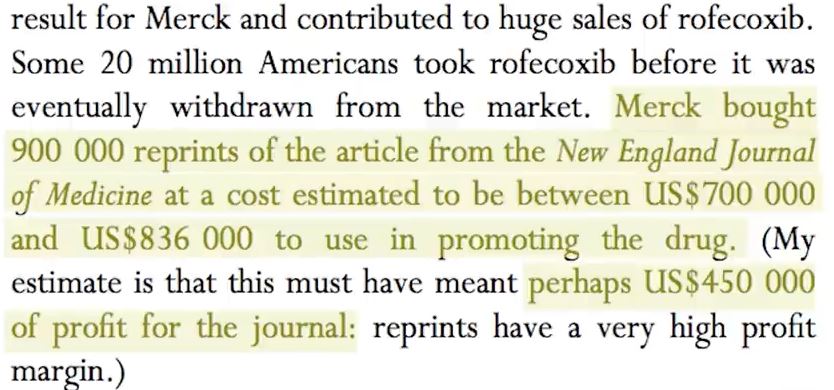
Scientific Papers being used to slander a competing drug
Papers will be written either comparing their drug to the competing drug and then fiddling with the dosage for the competing drug or their own to get the results they want, or they will outright create a trial for the competing drug. Deception is used with either the coding of the side-effects or the dosage to get the results they want.
Disease Marketing “get our drugs into healthy people”
Disease marketing is used to sell more drugs. Disease-mongering is a marketing scheme of pharmaceutical companies to persuade us – to use fear and use our trust in science in an extremely deceptive way – in order to persuade us to go on different kinds of drugs. A lot of people are just going to trust – it must be safe & effective, it’s been approved by the FDA, and so people take the drug. Gardasil was a Merck vaccine which engaged marketing PR firms to create TV commercials promoting “one less” – One less statistic, scaring people, especially parents into getting their kids to take their vaccine “in case they may get cervical cancer some day in the future”, something extremely rare. Those who take the vaccine may end up dead or in wheelchairs or hooked-up to tubes or on permanent medication for the rest of their lives. The pharmaceutical marketing is out of control – trying to increase their profits by disease-mongering – making things seem more serious and risky than they actually are in order for people to take their drug and increase their profits. They use public perceptions and fear in very effective ways to persuade patients to “go to their doctors” and “insist” you have these drugs.
FDA, CDC, NIH
When people hear about the kinds of fraud I’m talking about, they think “wait a minute, we have the FDA and they are the most respected regulatory agencies in the world, so how is it possible what you are saying to be true?” Now we have the phenomena of regulatory-capture – where regulators are ‘captured’ by the industry that they’re supposed to regulate. Different kinds of legislation is introduced that basically gifts to the pharmaceutical industry from the Senators and Congress who are lobbied ‘for’ such favourable legislation. It gets sold to the public as a good thing – “getting drugs approved faster”, and the industry becomes a ‘client’ to the regulators. We’re not dealing with rigorous oversight anymore. The other problem is the revolving-door where we have regulators and industry executives just go back and forth between the pharmaceutical industry and the FDA.
These Five Companies Control More Than Half of Academic Publishing (2015)
Peer-Review system hijacking science
Rumble | Cult of the Medics (Chap. 1) | Denis Rancourt (see links in desc. box)
NEJM Editor on the Corruption of Science by Pharma-Influence
25 Jan 2012 | Rumble | Full Interview | Video Source (Chap 1)
NEJM Former Editor-in-Chief Marcia Angell is interviewed on the occasion of the 200th Anniversary of the New England Journal of Medicine. She resigned in June of 2000 after twenty years in the post because of what she described as the rising and indefensible influence being exerted by Pharma at the prestigious journal and its powerful affiliate societies. So she wrote a book in 2005 called “The Truth About Drug Companies: How They Deceive Us and What to Do About It” and published an NEJM article titled “Is Academic Medicine for Sale?” in 2000.
Dr. Peter Rost | Former Pfizer VP Marketing | Pharma Corruption
- Everybody that I’ve encountered in my former career as a pharmaceutical executive are out there with their hands out. Everybody’s begging for money. Nobody has any money. The government doesn’t have any money. Universities don’t have money.
- The only ones that have money are these big multinational corporations. And they have lots of money. And they use that money to, basically, buy influence.
- And the way it’s done is, number one, you give these organizations and institutions grants for various kinds of research. You develop research together with them.
- You establish friends, you make sure that they become beholden to you. And you also pay individual professors and doctors and researchers directly. You may pay them as speakers to travel around the country… a thousand, two thousand dollars per day, sometimes more.
- You give them money or educational programmes where they can make a profit, and then they put on these programmes. They’re supposed to be third-party independent from the company, but if you have a promotional body at a corporation, they’re probably going to give that money to the universities that do the programmes that most support your drug.
- And the ones that don’t, or who are critical in any shape or form, are not going to get anything.
- Everybody knows this is how things work.
- Even if you can officially claim “well, this is arm’s length, we didn’t have anything to do with it, we just gave them a grant, they can do whatever they want with it”.
- Reality is, they’re not going to continue to get money unless they’re saying what you want them to say.
- They know it. You know it. It’s only mainly the public that doesn’t know it.
- And that’s how you influence the medical establishment simply with money.
Links:
- Wikipedia https://en.wikipedia.org/wiki/Peter_Rost_(doctor)
- 2006, Book: The Whistleblower, Confessions of a Healthcare HitmanAmazon | Archive
- In the book, Rost recounts how, following his appearance on 60 Minutes, Pfizer retaliates by disabling his corporate email, killing his cell phone and dropping his annual bonus. In response, Rost pens emails to Pfizer’s general counsel and IT department demanding an explanation — and he attaches an electronic tracer to the messages. The emails bounce around the company and then on to three “world-class law firms” and a huge communications company. Within a few days his emails are opened over 100 times, and Rost realizes he may be “outgunned” in his battle with Goliath.
- Perhaps Rost’s scariest discovery comes after pushing Pfizer management to address Pharmacia’s illegal marketing of Genotropin. He uncovers a mysterious document stuck in his personnel file which turns out to be authored by a private investigator, hired by Pfizer, reporting on whether Rost ever purchased a weapon and whether he might be a danger to himself or others. It is around this time, Rost says, “I vowed I would expose the pharmaceutical industry and their methods.”
- https://peterrost.blogspot.com/
- https://twitter.com/peterrost
- https://gab.com/Zitzit
- Good collation of Dr Peter Rost video clips, articles, testimonies and books here: http://the-whistleblower-by-peter-rost.blogspot.com/ (looks like someone’s affiliate site, but they did include a lot of links and details).
Scientific Literature as a Marketing Tool
These are the journal publications I found in just under 3 hours a few weeks ago. There was hundreds more but it made me sick to the stomach. You can download the literature as zip file that I started, but if you want to use it for a court case or for your own studies, just know there is a lot more there, I just cannot spend any more time on this. All it does it prove to me, that the whole system is rigged and there’s not much we can do about it.
See also:
- Elsevier Continues To Build Its Monopoly Solution For All Aspects Of Scholarly Communication
- Editorial Mutiny at Elsevier Journal
- Is the staggeringly profitable business of scientific publishing bad for science?
- Elsevier are corrupting open science in Europe
- Can’t Disrupt This: Elsevier and the 25.2 Billion Dollar A Year Academic Publishing Business
- List of Elsevier’s 27 Acquisitions
- Reed Elsevier to acquire ChoicePoint for $4 billion
Published: Oct 16, 2021.
Updated: Feb 23, 2022 (added “The Illusion of Evidence Based Medicine Video)
Updated: Jan 1, 2023 (added 2 more videos: Denis Rancourt’s “Corruption of Peer-Review” and Marcia Angell’s “NEJM Editor on the Corruption of Science by Pharma-Influence”)
Updated: Feb 12, 2023 (added Dr Peter Rost on Influencing the Medical Establishment with money)

Site Notifications/Chat:
- Telegram Post Updates @JourneyToABetterLife (channel)
- Telegram Chatroom @JourneyBetterLifeCHAT (say hi / share info)
- Gettr Post Updates @chesaus (like fakebook)
Videos:

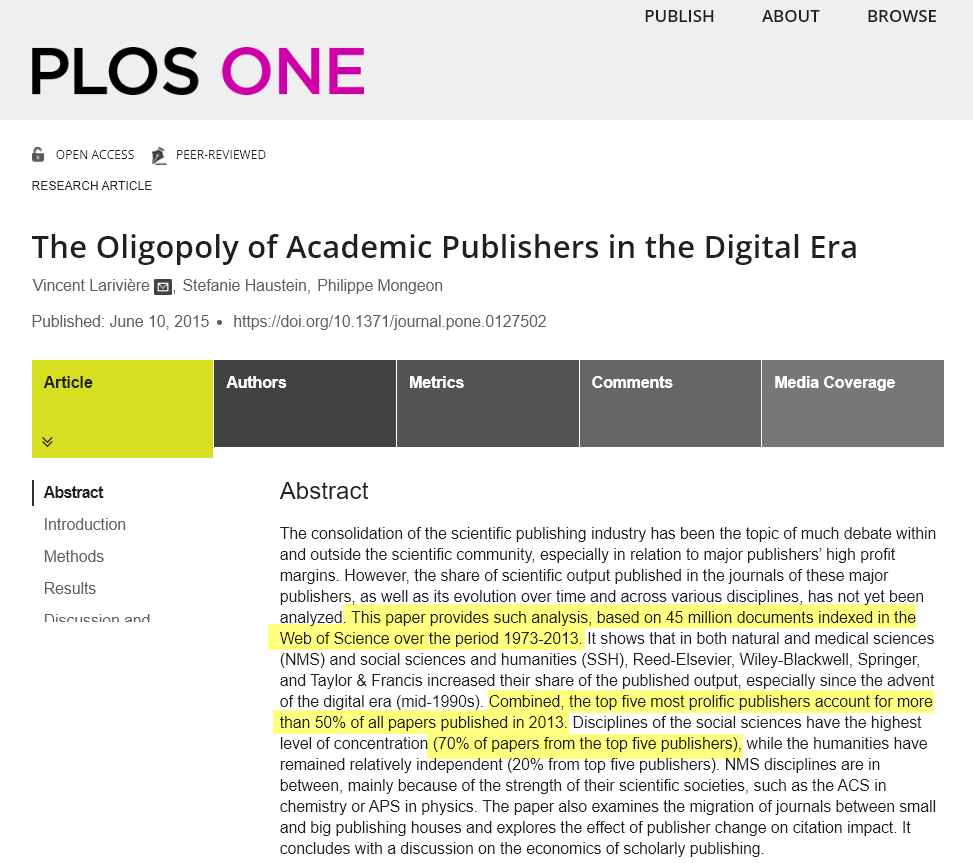


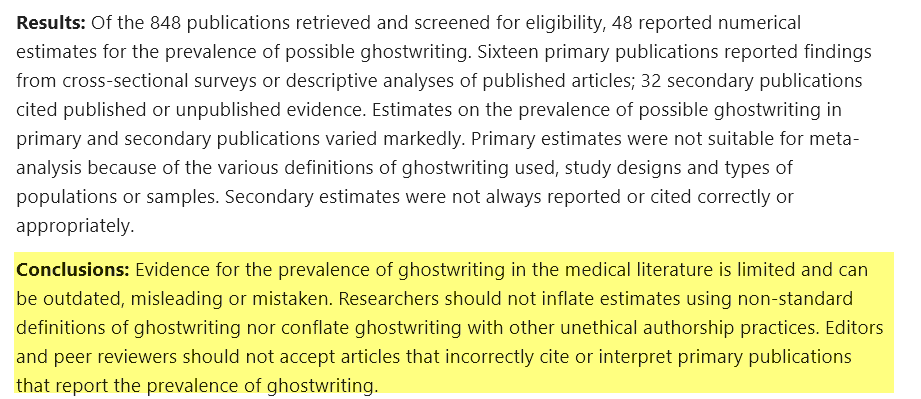
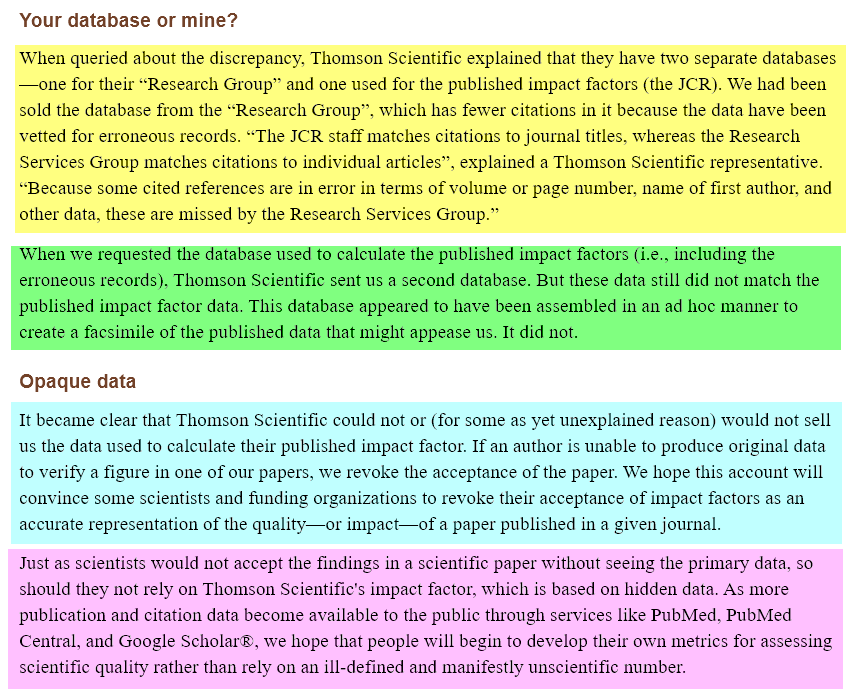



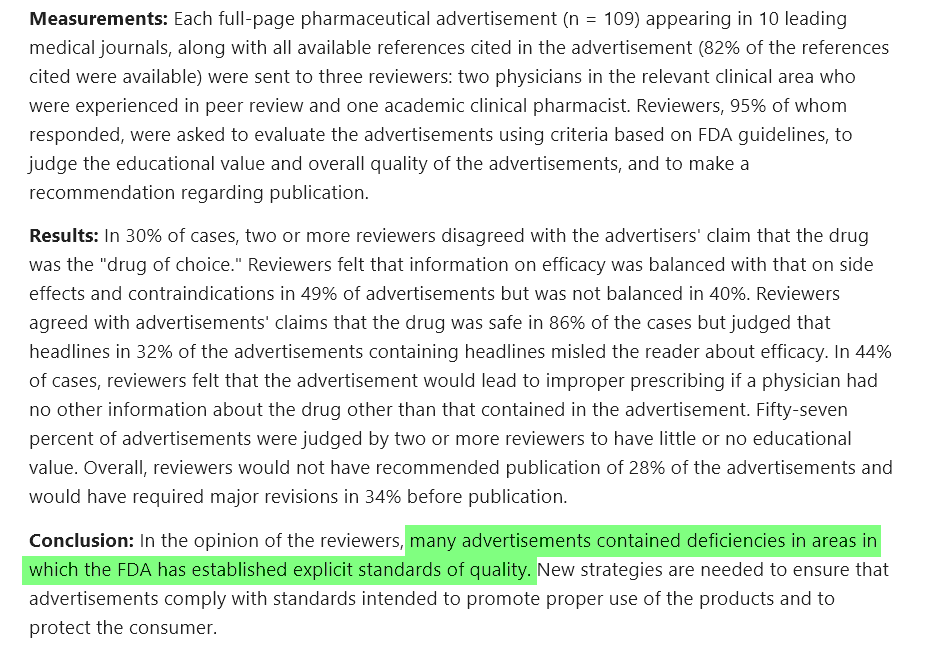
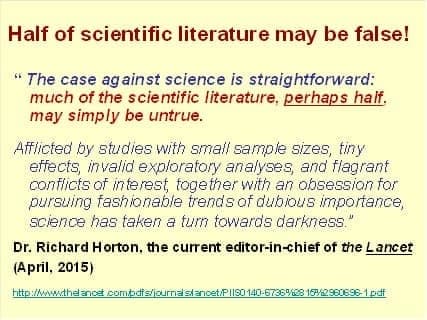







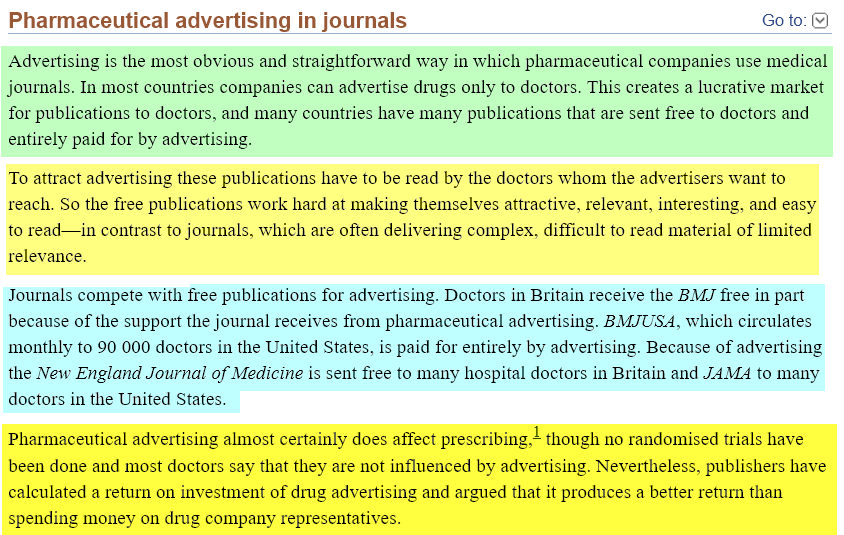



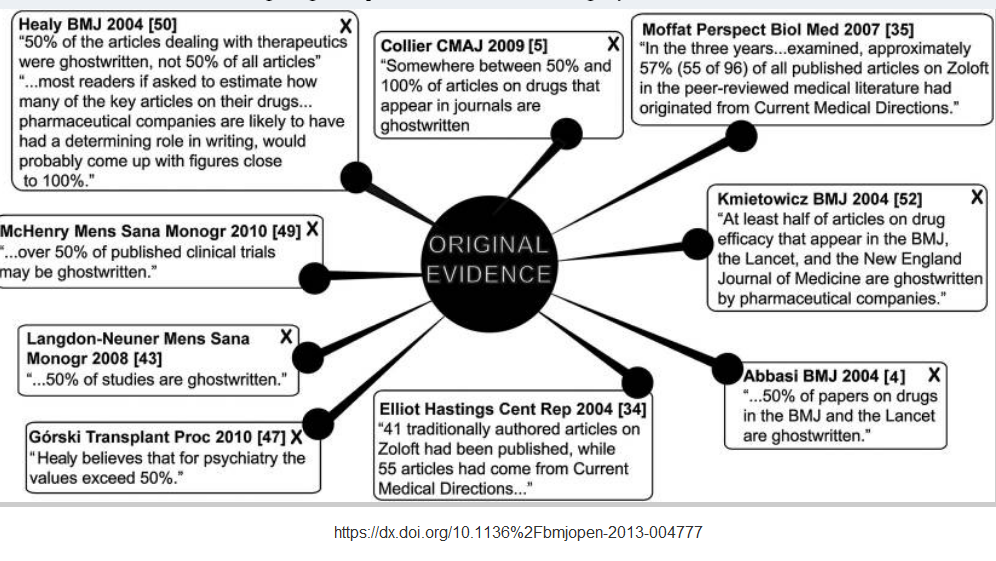




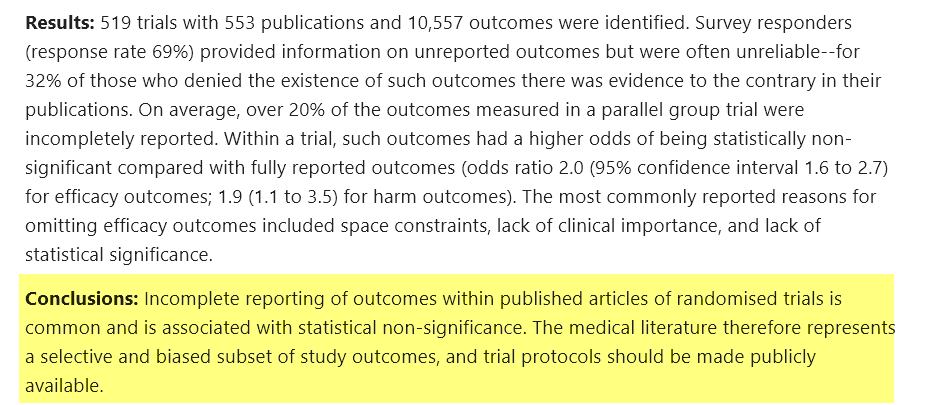


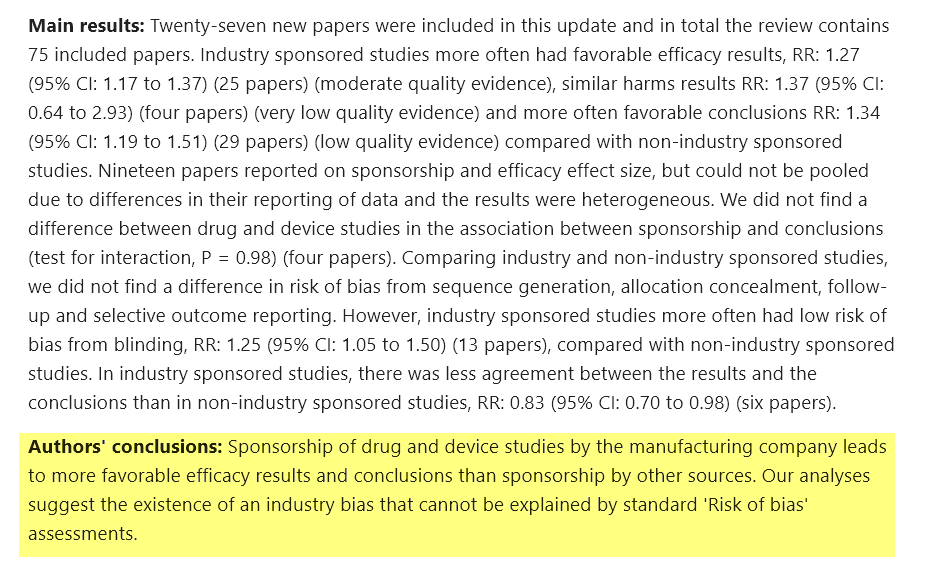
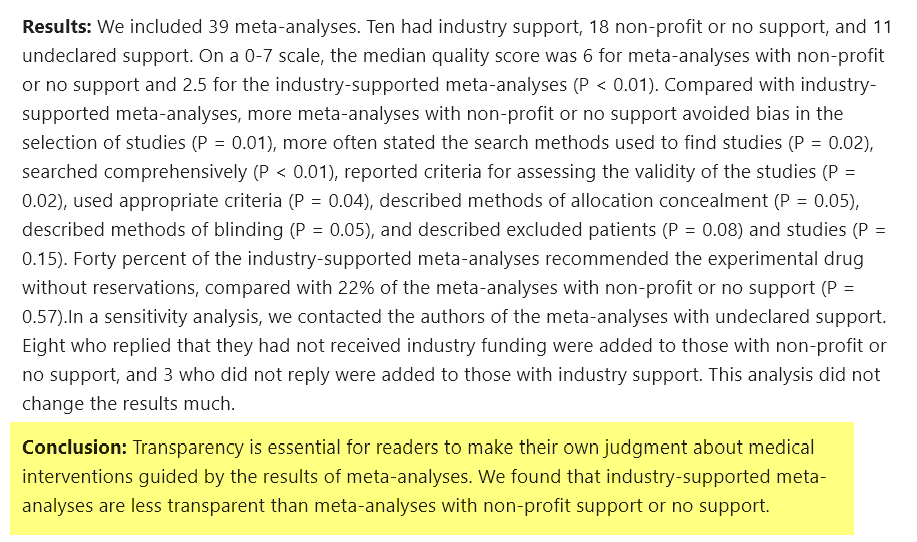
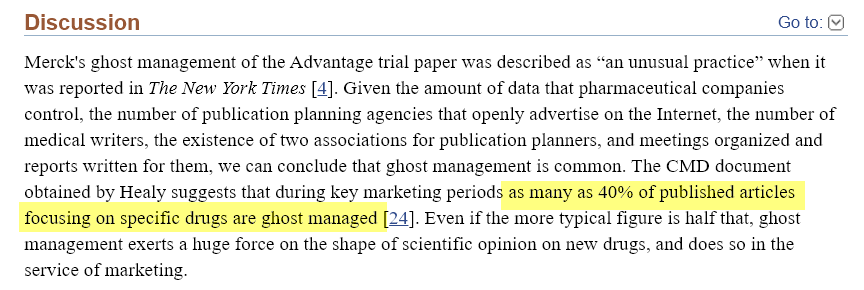

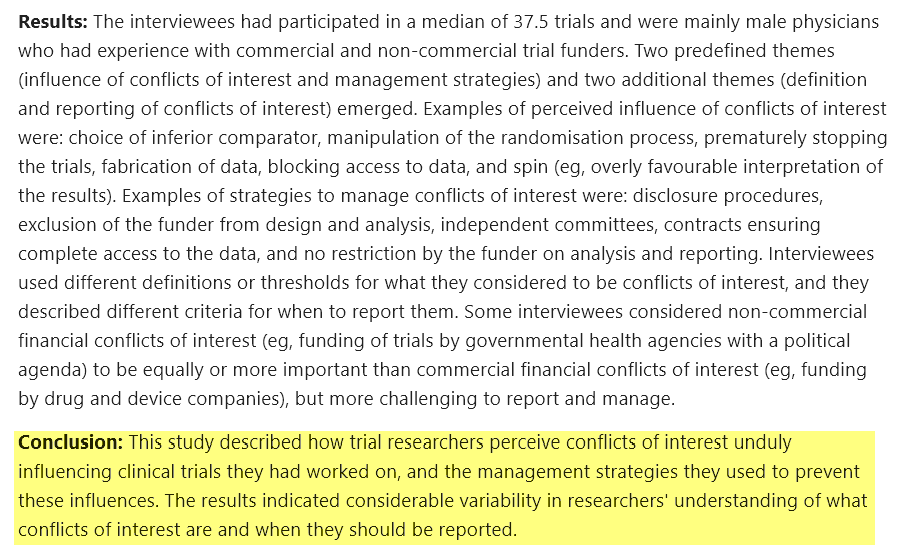


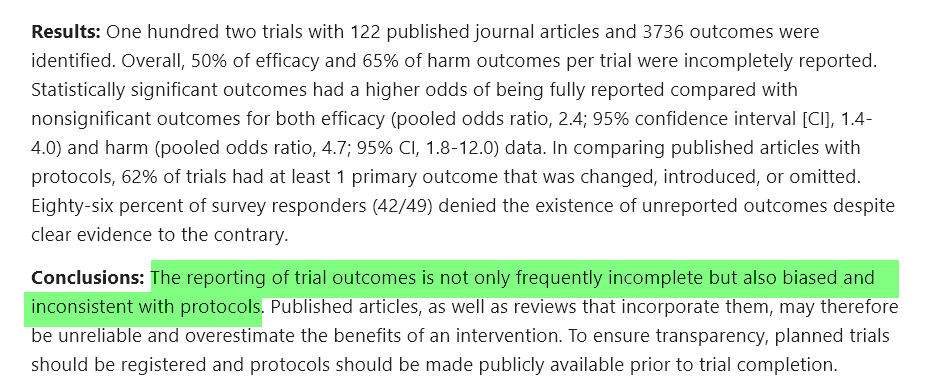
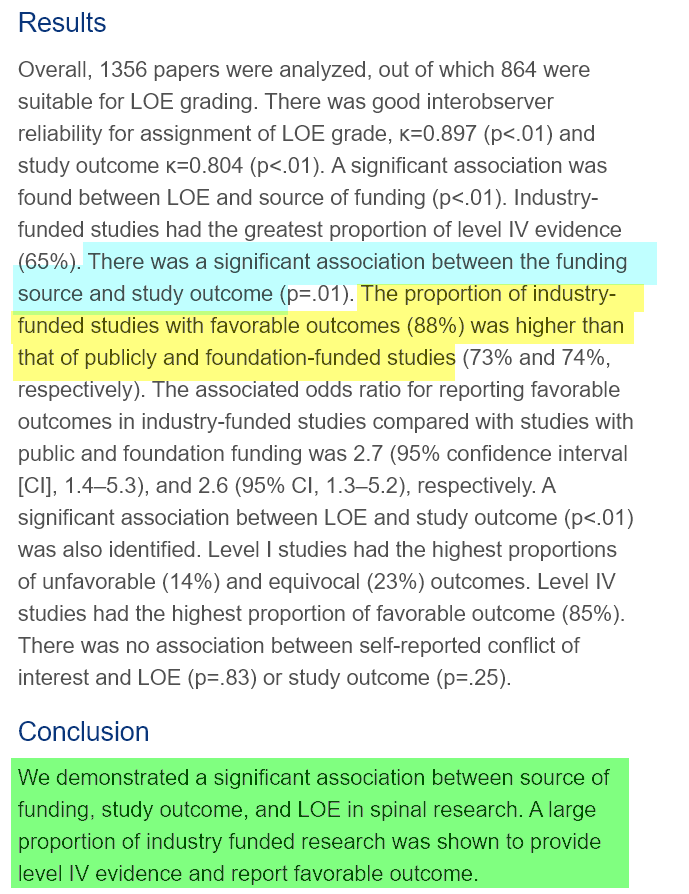



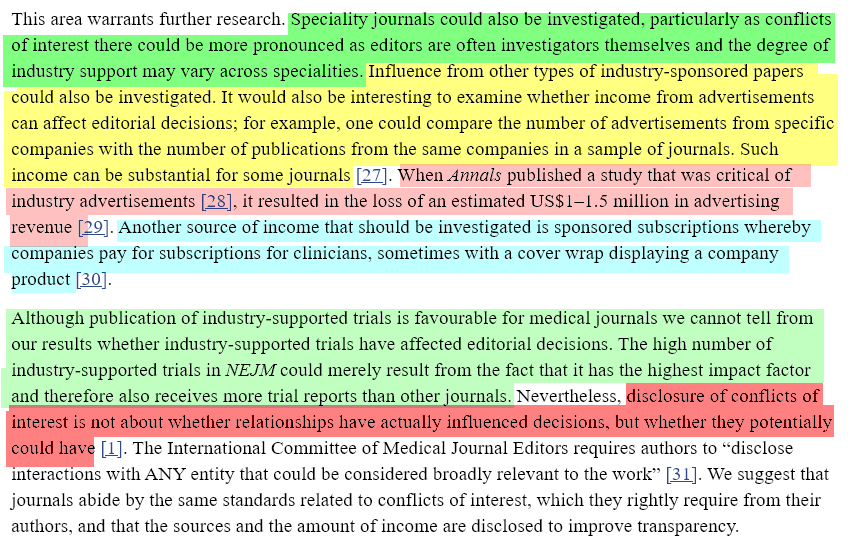


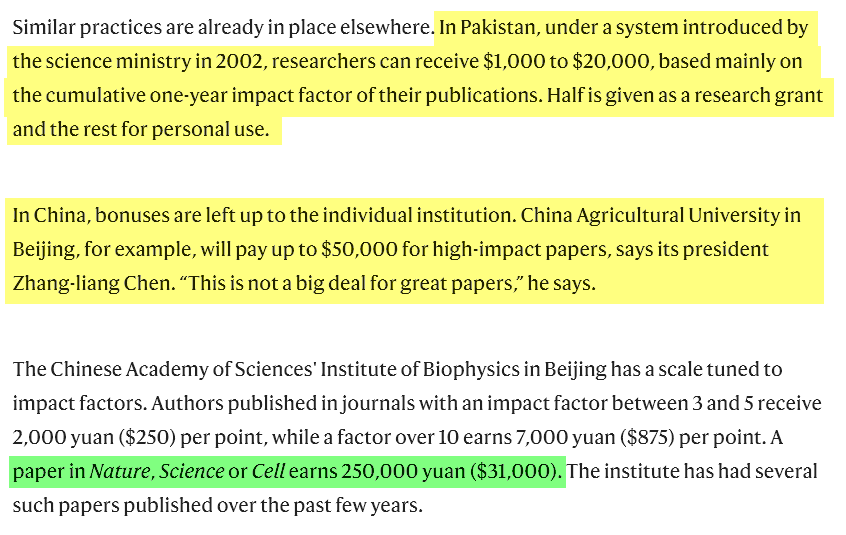




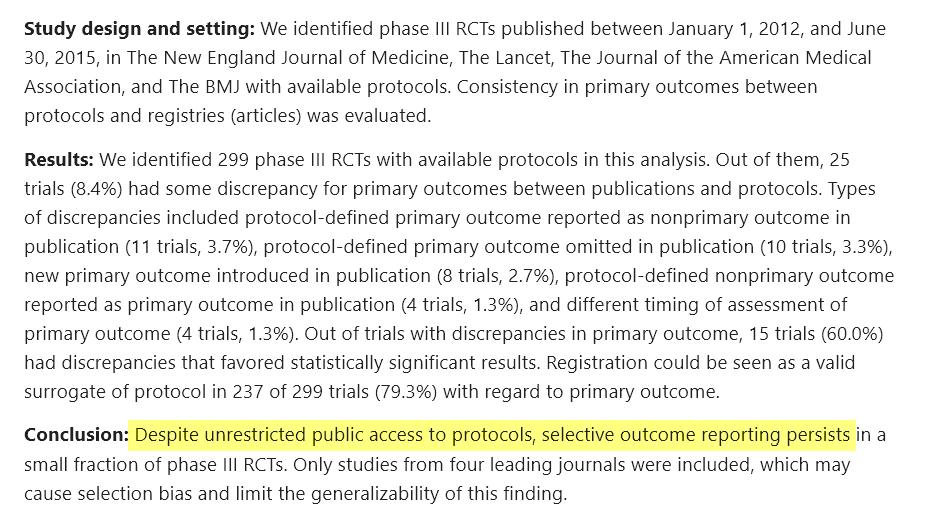
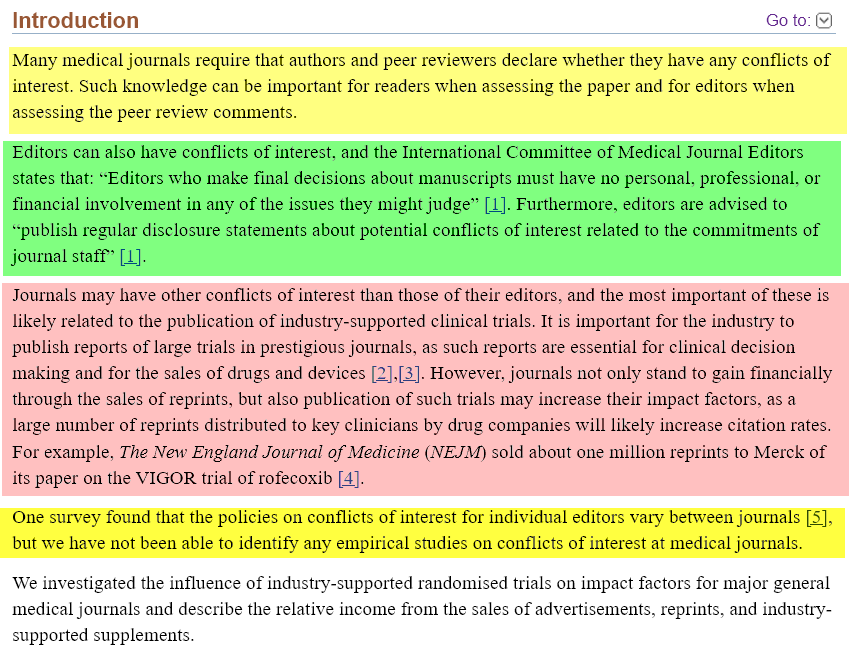



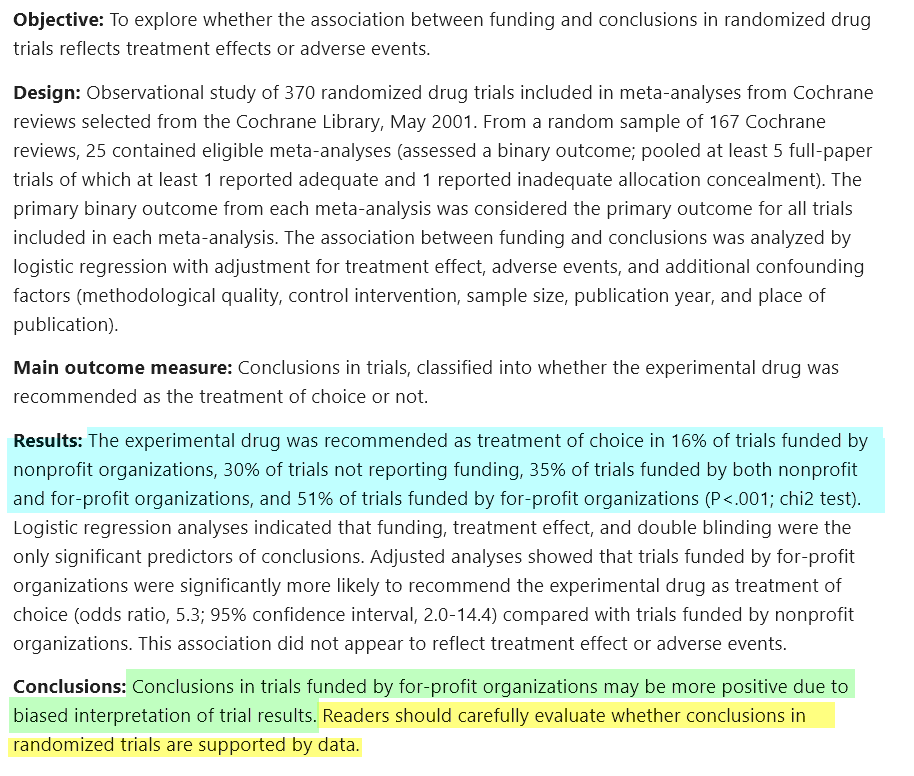


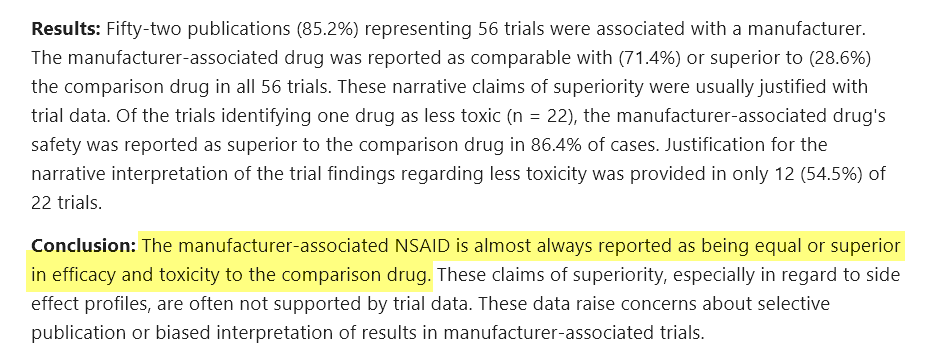




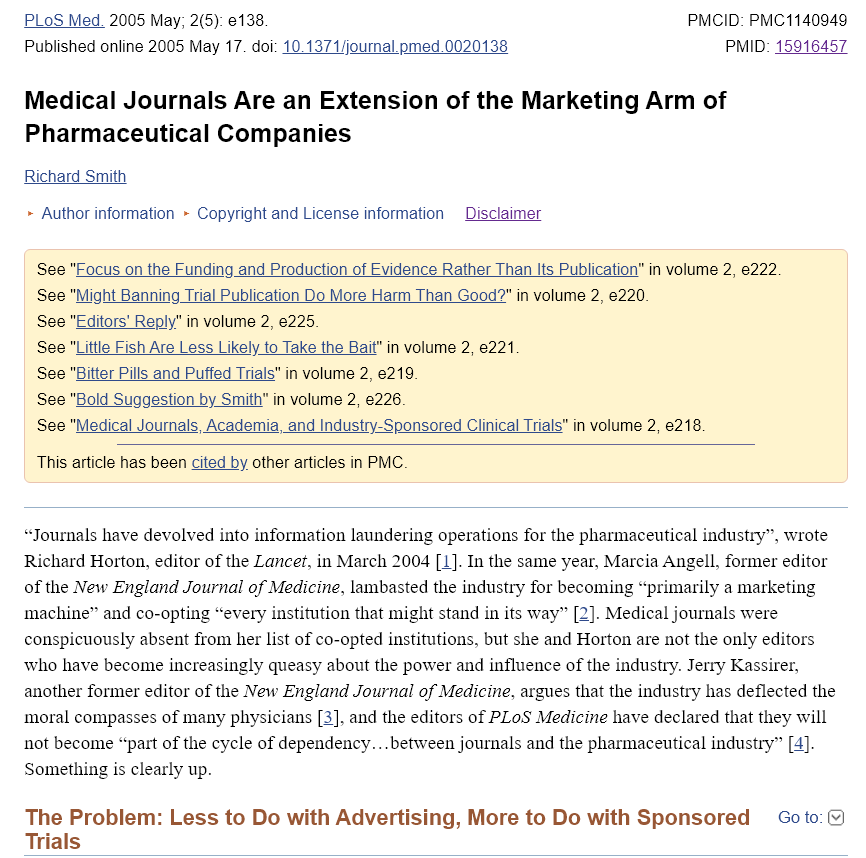

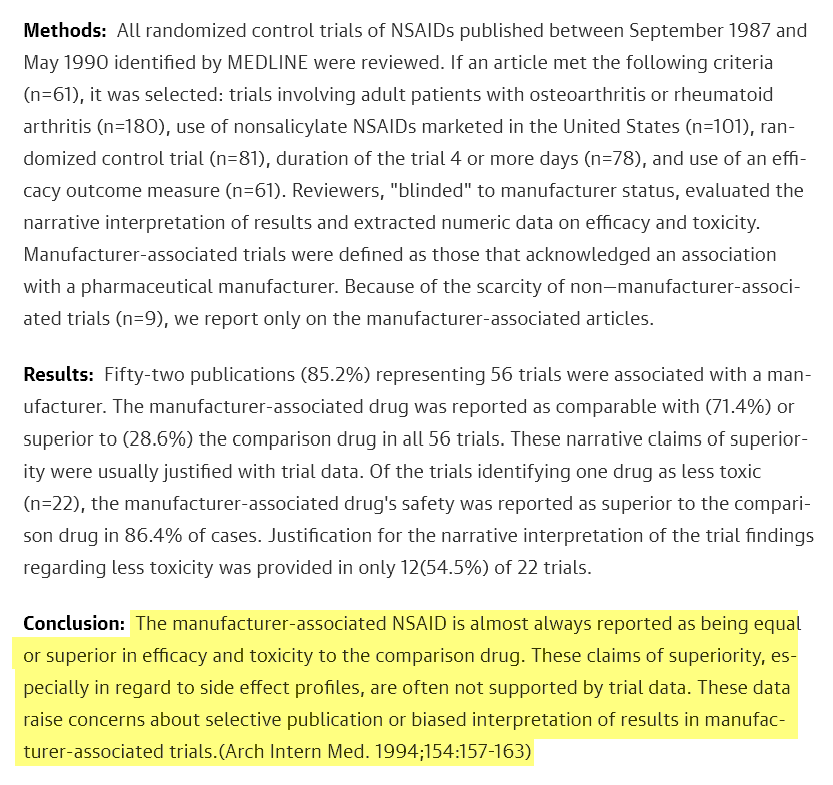

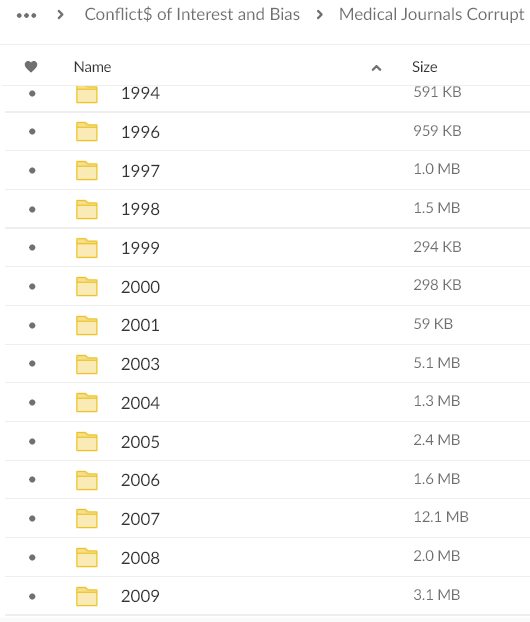
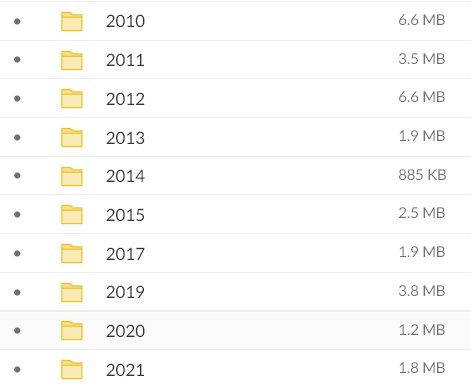




![[Police Standing Up] Stephen Kelly – Update – Criminal Mandates on Kids – Jan 19 2022](https://pennybutler.com/wp-content/uploads/2022/01/stephen-kelly-police.jpg)
